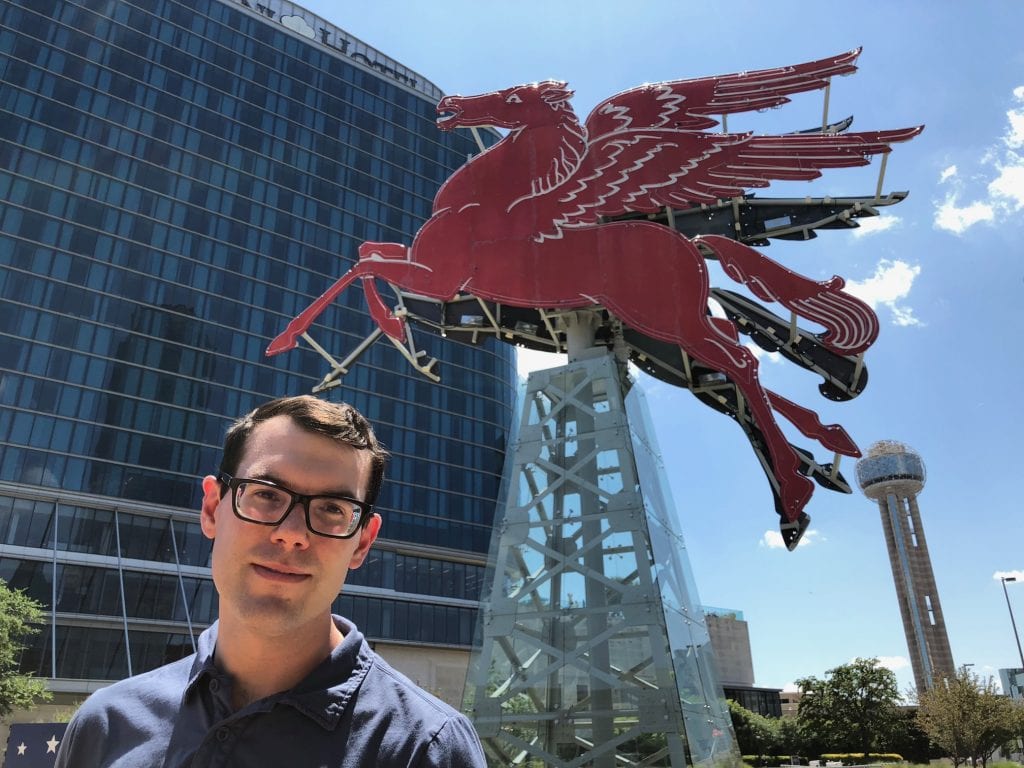In February I moved from New York City to Dallas, Texas – trading in my winter coat and gloves for a cowboy hat and boots. After living 14 years on both coasts, I was moving “home” in a sense – back to the South – to the land of sweet tea, steaming summers and generous hospitality.
Relocating has opened up completely new experiences for me to connect to a new community – to find new friends, colleagues, local causes to champion, and new ways to plug in. And because of my role counseling clients on sustainability and social impact, I’ve also gained a fresh perspective on how companies and brands have a similar opportunity.

At the heart of community is people – and their relationship and responsibility to their neighbors. Clearly, companies play a beneficial economic role within a community – hiring and employing local talent and buying and selling goods from other small and large business owners.
But I believe there is an opportunity for purpose-driven companies to provide even greater value – helping to improve the lives of the people that live, work, play – and purchase – within that community. In fact, according to the 2018 Ketchum Purpose Study, the majority of Americans still believe companies should first address community-level issues before individual, national or global issues.
Here are four “Cs” brands should consider when choosing a community cause:
- Corporate:
Does your company have a corporate social responsibility (CSR) or brand cause-marketing strategy that can be localized? Strengthen these umbrella programs and campaigns through a community relations approach that addresses local issues and engages consumers in a very tangible way. One global financial services firm recently expanded its youth workforce training program from Detroit and Denver to right here in Dallas, specifically responding to the skills gap that inhibits high school graduates from securing jobs in our growing local industries. - Champions:
Do you want to sustain engagement with employees? Empower passionate and energetic employees to take the lead in organizing volunteer opportunities and signing up their coworkers. Make your time count – focus less on recruiting and logistics, and more on giving employees what they need to succeed – budget, counsel, NGO partner recommendations, and promoting and amplifying the work. One New York-based airline has so much demand to volunteer at the company-run farm at JFK, which supports an area food bank, that there is a “standby list” for pilots and flight attendants who want to participate. - Citizens (and Consumers):
What issues are important to local residents? Our study picked up on the key causes consumers care about at a national level – animal welfare, children’s education, hunger – but there are distinctions between gender, age, race, socioeconomic status – and yes, locale. Every community has their own concerns, priorities and even gaps in social services that need to be filled. Do the research and find out where you can plug in. One major pharmaceutical company has taken on the diabetes epidemic by piloting a neighborhood-based community health worker program in its hometown of Indianapolis. - Culture:
Want to not get yourself in a pickle? Don’t be tone deaf. What works in Dallas may not work the same in New York City – or San Francisco, Miami or Minneapolis. This applies to engaging consumers, working with community leaders and officials – and, particularly, navigating local issues. And don’t just support the glitzy “sponsored by” projects in the wealthiest neighborhoods. Find out where the pain points are and ways you can make an impact with residents, especially those that need it the most. For example, we helped one of our clients launch a campaign that installed clothes washers and dryers in schools where at-risk students suffered from chronic absenteeism due to dirty clothes.
They say home is where the heart is. If you want to strengthen your brand’s emotional appeal or build an intimate connection with consumers or employees, make the move – and become part of their community.



